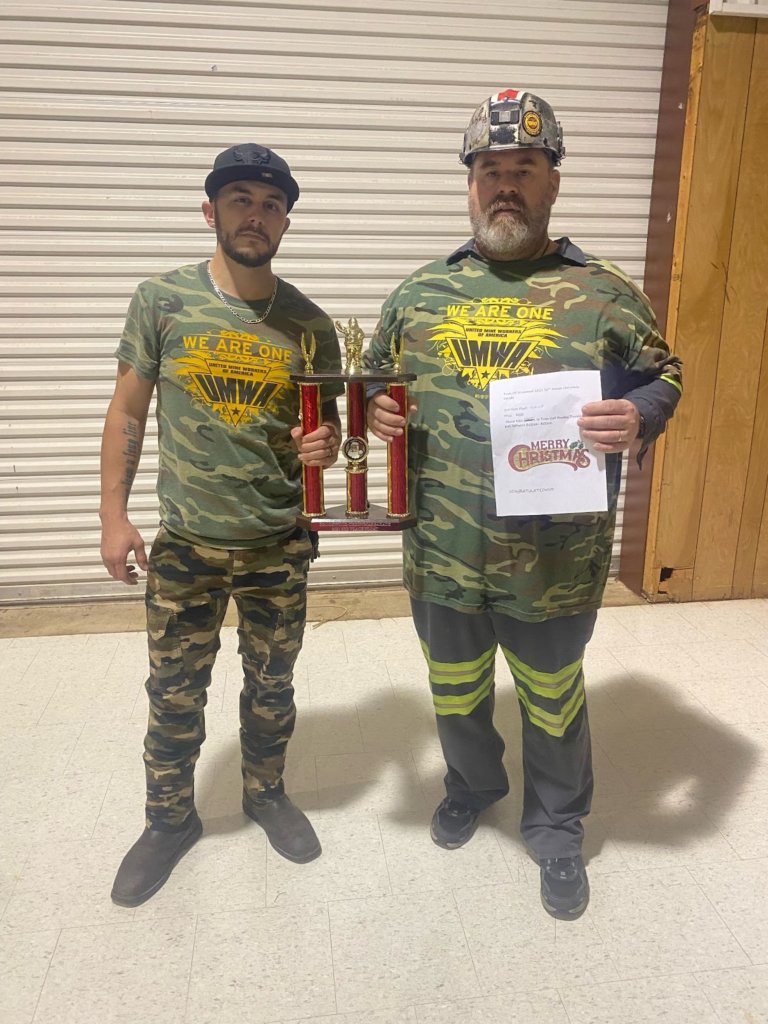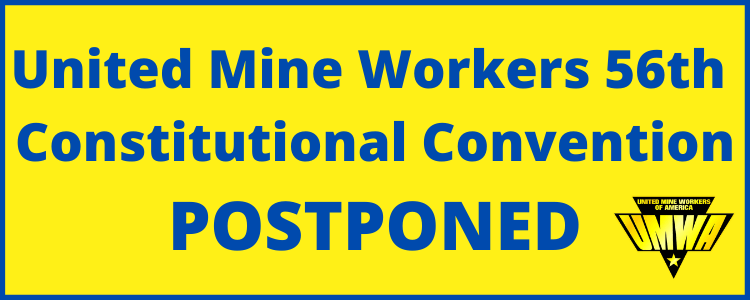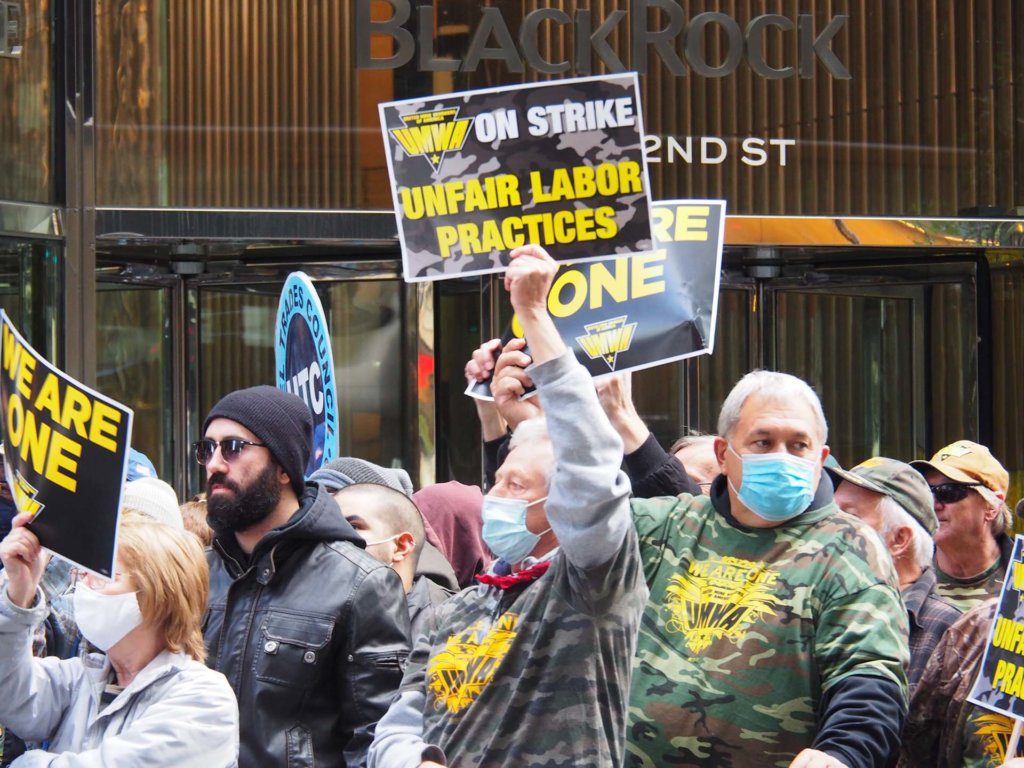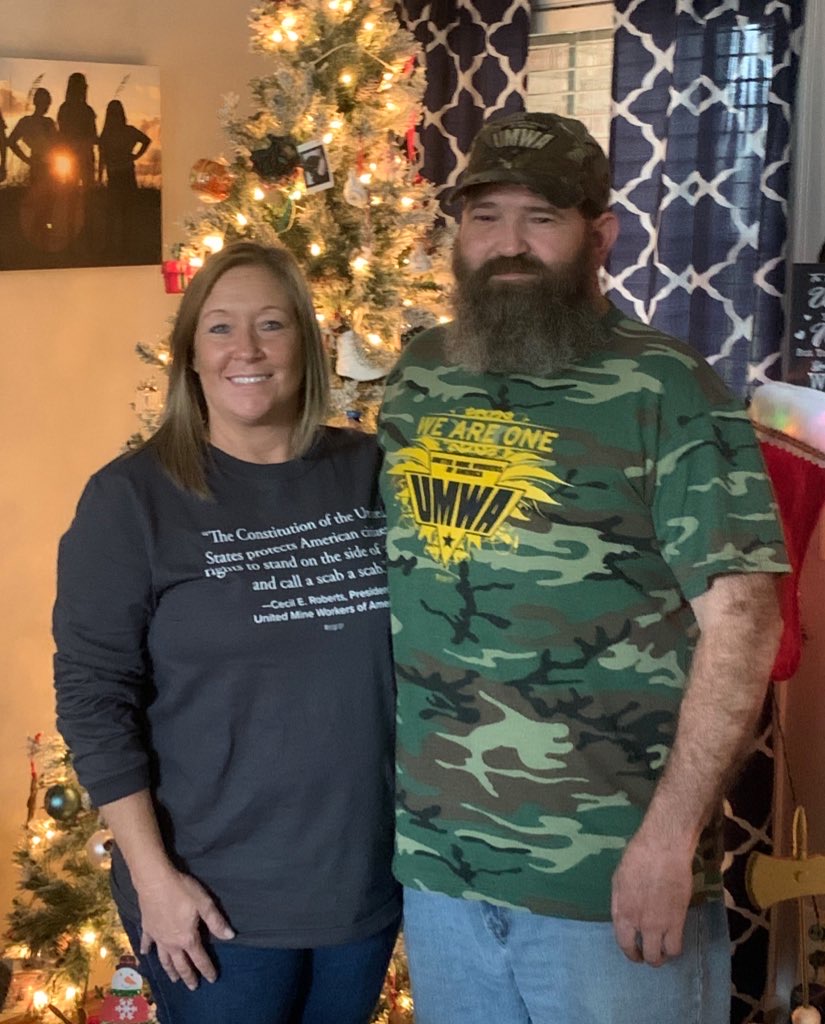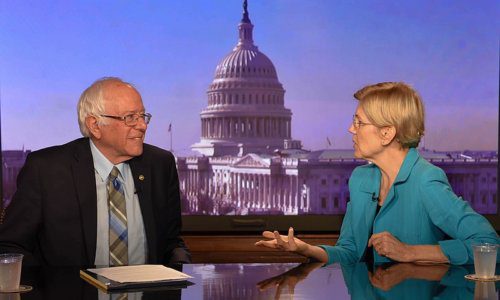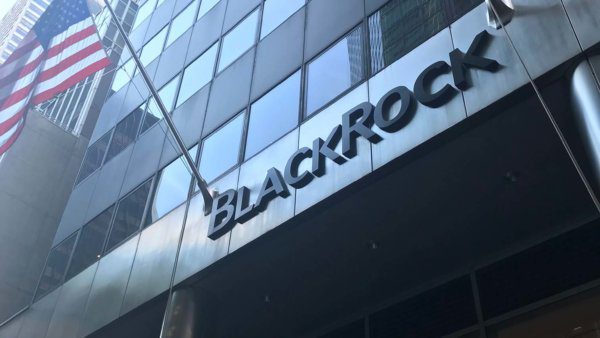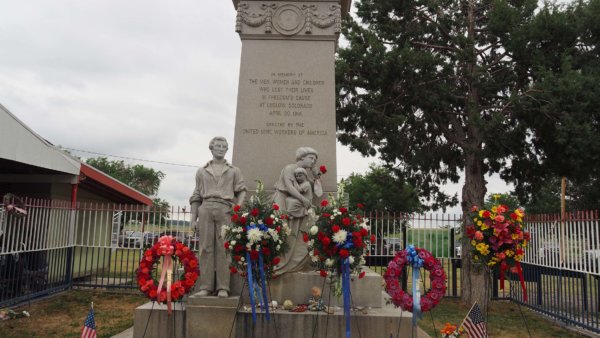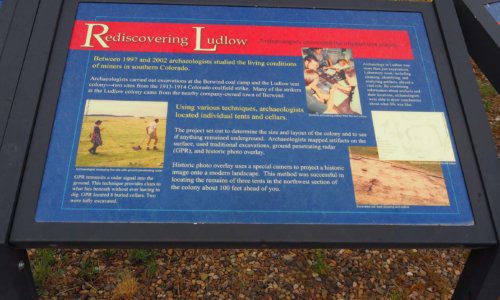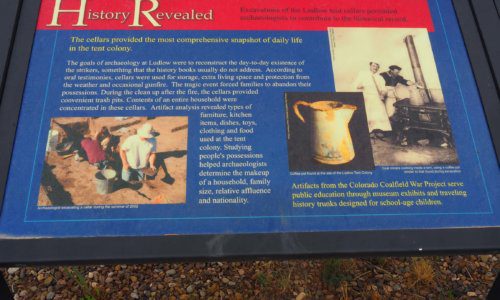Source: Charleston Gazette-Mail
January 15, 2021
‘It just ain’t right’: WV retired miners condemn Congress’ failure to restore tax behind black lung benefits
Jerry Coleman used to hunt.
But 37 years in the mines took away the breathing capacity he needed to walk up a hill or drag a deer, leaving him with black lung disease and the will to fight for others who lost lung power as they helped power the country. Coleman, 69, of Cabin Creek is president of the Kanawha County Black Lung Association. Many of the group’s members require supplemental oxygen to live. “We can’t do the things that people our age that don’t have black lung can do,” Coleman said. They also can’t do lawmakers’ jobs. Congress has failed to extend a tax on coal production that supports the fund that provides critical healthcare benefits for miners and their families.
The tax expired at the end of 2021, reverting back to substantially lower levels and threatening the long-term benefits of thousands of West Virginia mine veterans. “It’s a sad situation,” said David Bounds, vice president of the Fayette County Black Lung Association. “It’s a trust fund that’s gonna go broke.” The Black Lung Disability Trust Fund pays benefits to miners as well as their eligible survivors and dependents when no responsible coal operator is identified or when the liable operator does not pay. “Who’s paying these coal miners? How are they going to pay them?” Bounds asked. “The money has to come from somewhere.”
Bounds was diagnosed with black lung disease in 1982. He worked in the mines for another 21 years, operating coal loaders and shuttle cars to support his daughter and put food on the table. Bounds, 74, no longer has enough wind to carry two loads of groceries into his Oak Hill home from his driveway 25 feet away, decades after mine operators pushed him and fellow workers to mine three times more coal as they would on inspection days.
Bounds recalled that his black lung benefits started coming from the federal government after the A.T. Massey Coal Company went bankrupt, putting taxpayers on the hook. “You promise something, you oughta stick to it,” Bounds said. “[The company] should have to pay me the rest of my life. They should have to pay me because I won that award. There should be no way out of it. They should have to pay. Taxpayers shouldn’t have to come up with that money.” The trust fund pays for benefits in cases where the miner’s employer has gone bankrupt, straining the fund as the coal industry’s decline accelerates.
Coal company bankruptcies have burdened the trust fund with hundreds of millions of dollars of liability. “They’re not paying their [excise] tax,” Coleman said. Coleman and other black lung benefit advocates have lobbied Congress for years to shore up the fund, urging lawmakers to increase the tax by 25% in line with a federal audit agency finding that such a hike could eliminate the fund’s debt by 2050. “It’s up to the companies and the government,” Coleman said. “We kept this country lit up for a long time and people took it for granted.” But miner advocates have had to fight just to ensure the extension of the excise taxes from year to year. Excise tax rates of $1.10 per ton of coal mined underground and 55 cents per ton of surface-mined coal have been cut by more than half to 50 and 25 cents, respectively, because of Congress’ inaction. The taxes reverted back to original rates in 2019 when Congress failed to act the previous year.
The Black Lung Disability Trust Fund collected $271 million in revenue in fiscal year 2021. Based on that figure and the fees change, the fund could see revenues decreased by more than $2 million a week. A 2018 report by the U.S. Government Accountability Office, a nonpartisan agency that investigates federal spending, found that trust fund borrowing might exceed $15 billion by 2050. A 2020 report from the agency found that just three coal mine operator bankruptcies from 2014 to 2016 added $865 million in estimated benefit responsibility to the fund. More bankruptcies have followed. “This burden will be paid by taxpayers and not the coal companies responsible for the disease,” the Appalachian Citizens’ Law Center and the environmental group Appalachian Voices said in a report released earlier this month calling for the excise tax to be extended.
“It just ain’t right,” Bounds said. Financial risks to the Black Lung Disability Trust Fund loom especially large in West Virginia. There were 4,423 black lung claims in fiscal year 2021 under Part C of the Black Lung Benefits Act in West Virginia, according to U.S. Department of Labor statistics. Disbursements in West Virginia totaled $38 million, far more than in any other state and accounting for more than a fourth of all payments made nationwide. Saying it would hurt the coal industry, the state’s congressional delegation has opposed increasing the excise tax. President Biden’s $1.75 trillion spending package known as Build Back Better, approved by the House, includes a four-year extension of the excise tax at previous rates. Sen. Joe Manchin, D-W.Va., and four other Senate Democrats reintroduced legislation last year that would extend the tax for 10 years. That legislation has languished in the Senate since being referred to the Finance Committee in September.
Manchin’s opposition to Build Back Better has kept that bill and its four-year excise tax rate extension from passing. “Manchin, I don’t know what his plans are,” Coleman said. “We were looking for at least the four-year extension.” “If he doesn’t help us get this passed, it seems like we’ll be in worse shape than we’re already in,” National Black Lung Association President Gary Hairston of Beckley said last month. Hairston was one of 15 Black Lung Association representatives to join the Kanawha County Black Lung Association, the United Mine Workers of America union and 67 partnering organizations in signing a letter to congressional leaders Thursday urging them to pass the bill that Manchin and other Senate Democrats reintroduced.
“If it wasn’t for the black lung associations making a little bit of noise and letting people know that we’re still here, my own feeling [is] that the government would eventually just let it go, just forget about it,” Coleman said. Organizations joining area black lung associations in signing the letter included the Charleston branch of the NAACP; Coal River Mountain Watch, a Raleigh County-based nonprofit that opposes mountaintop removal; the West Virginia Citizen Action Group; the West Virginia Council of Churches; West Virginia Interfaith Power and Light; and the West Virginia Rivers Coalition. “Miners and families impacted by black lung need the stability of a longer-term extension of the excise tax so they can address other urgent issues — including a study on the adequacy of the benefits, the need for workplace protections to prevent the disease, and legislation that addresses the [fund’s] solvency crisis over the long-term,” the letter states.
The UMWA called last month on Manchin to “revisit” his opposition to Build Back Better, urging him and other senators to avoid shifting the burden of paying black lung benefits away from coal companies onto taxpayers. The number of black lung beneficiaries is likely to escalate in the near term due to an increasing frequency of severe cases in central Appalachia impacting more younger miners and their families.
Miner advocates attribute the trend to federal mine regulators not sufficiently protecting coal miners from the disease, pointing to a silica exposure limit that a federal watchdog agency has said is out of date — essentially the same limit as was established in the 1960s.
While miners fight just to maintain funding for health benefits they need to survive, coal companies operating in West Virginia keep mining not only with less of a black lung excise tax burden but lowered severance taxes and limited consequences for coal reclamation tax liabilities. “[T]he government’s letting them by,” Coleman said. Left in the dust Black lung monthly benefit rates for 2021 were $693 for a primary beneficiary and $1,040 for a primary beneficiary and one dependent. “The last little bit of hard-earned benefits many miners still receive is through this Trust Fund,” Beckley attorney Sam Brown Petsonk, who represents miners in black lung cases, said in an email. “It should be unthinkable that Congress would neglect to permanently protect the Trust Fund.”
Petsonk said he has seen a dramatic increase in cases among miners in their 40s and 50s. Some cases are so severe, miners in their early-to-mid-40s require lung transplants. The Appalachian Citizens’ Law Center is seeing more severe black lung disease than ever, said Rebecca Shelton, policy and organizing director at the Kentucky-based nonprofit law firm that represents coal miners in black lung disability claims. Miner advocates have condemned the Mine Safety and Health Administration for refusing to lower the legal exposure limit for silica dust, the catalyst for the sharp rise in the most severe black lung cases. Silica dust is composed of small particles that become airborne during drilling, chipping, cutting, grinding and other work activities. Although the National Institute for Occupational Safety and Health says chronic silicosis usually occurs after 10 or more years of exposure to respirable crystalline silica, the agency has noted the disease can occur much more quickly after heavy exposures.
Severe black lung in central Appalachia has reached its highest level since record-keeping began in the 1970s, according to a 2018 report in the American Journal of Public Health. The report found one in 20 long-tenured underground miners in central Appalachia had coal workers’ pneumoconiosis, or black lung, that had advanced to progressive massive fibrosis, a condition the authors noted is “totally disabling.” “We can think of no other industry or workplace in the United States in which this would be considered acceptable,” the authors wrote. Mining veterans and industry experts say miners are cutting into more surrounding rock as coal seams thin, increasing exposure to silica dust from the crushed rock. “This silica, whenever it hits your lungs, it doesn’t come out,” Nicholas County Black Lung Association President Arvin Hanshaw said during a recent online press conference.
The Department of Labor Office of Inspector General found in a November 2020 report that the MSHA has not sufficiently protected coal miners from silica dust. The inspector general observed that the agency does not issue citations or fines for excess silica exposures alone since its exposure limit for silica is tied to its exposure limit for respirable coal mine dust. The office noted the agency’s silica sampling protocols might be too infrequent to protect miners. In its fall 2021 statement of regulatory priorities, the Department of Labor said the MSHA would propose a new silica standard. The Inspector General’s Office observed that the MSHA has spent more than two decades in rulemaking without changing its silica exposure limit, starting and restarting efforts for silica regulations at least five times, in 1996, 1998, 2003, 2010 and 2014.
“The fund itself is going down because you’ve got more people drawing from it and you’ve got less money going into it,” Bounds said. ‘Small thing to ask for’ Manchin has favored extending the excise tax at previous levels as has the UMWA, which has argued that raising the tax could increase taxpayer burden with companies being relieved of their obligations to pay the tax in bankruptcy court.
Sen. Shelley Moore Capito, R-W.Va., who is united with fellow congressional Republicans against Build Back Better, has expressed support for extending but not increasing the tax. Rep. Alex Mooney, R-W.Va., touted the trust fund’s importance in a statement last year but balked at raising the tax that supports it. “There needs to be a more efficient solution to continuing this program without raising taxes on a struggling industry,” Mooney said. A spokeswoman for Rep. Carol Miller, R-W.Va., last year condemned the proposed excise tax increase as a “resurgence of the War on Coal, meant to destroy our communities and usher in a radical socialist agenda.”
Miller said the focus should be on reducing cases and growing mining operations to support the trust fund at the same or lower rates. Rep. David McKinley, R-W.Va., has said he supports ensuring coal miners and their families get the benefits to which they are entitled, but he argued against raising the excise tax. “[R]aising taxes on coal companies that are already struggling to survive is not the answer,” McKinley said. “Doing so will just cause more bankruptcies for the coal industry — and more lost jobs in the coal fields.”
McKinley, Miller and Mooney all voted against Build Back Better and the four-year excise tax extension in November. “Truly, we feel that it’s incredibly unacceptable that this excise tax was cut,” Shelton said during Friday’s press conference. “It’s a very small thing to ask for for the continuation of this tax at its very low rate. We’re just asking for a continuation of the status quo. Senators and representatives often pledge their support for miners and their families, but we don’t see those words realized through action often enough.” “We put these representatives in office for our benefit,” said Hanshaw. Severe black lung disease ended his 35-year underground mining career.
“Black lung doesn’t hit just one side, it’s both sides. It’s both sides that puts these representatives in office in Congress to help the people. They need to be doing that.” Rising trust fund risk A Government Accountability Office report released last month found lax Department of Labor oversight of the self-insurance program for coal mine operators is increasing the financial risk to the Black Lung Disability Trust Fund. Bankruptcies of self-insured operators add to the estimated benefit responsibility of the trust fund when the amount of collateral the department requires does not fully cover the operator’s benefit responsibility in the event of insolvency. The office had recommended in a February 2020 report that the Department of Labor establish procedures for self-insurance renewals and coal operator appeals to reduce financial risk to the fund. The Labor Department agreed.
That month, according to the Government Accountability Office, the department sent letters to 14 self-insured operators asking them to provide about $251 million in total collateral. Half of the coal operators provided the collateral the department requested. The other half appealed. Department officials said their ability to resolve the appeals was hampered by the COVID-19 pandemic, and they suspended reviews of coal operator appeals. The Labor Department set a goal in December 2020 of resolving coal operator appeals within 90 days after receiving supporting documents or meeting with the operator to discuss their concerns, according to the accountability office.
But two months later, the department rescinded a preliminary bulletin that included that goal and other actions that would have addressed the office’s recommendations due to a program review by the Biden administration, the accountability office said. Department of Labor officials said they had taken no further action to resolve appeals or collect additional collateral or other information from self-insured operators. That inaction kept the department from obtaining $186 million in requested collateral from self-insured operators, including Utah-based Lighthouse Resources, whose bankruptcy filing could result in a transfer of $2.4 million of estimated benefit responsibility to the trust fund. Labor officials said the Biden administration’s program review was complete in November, but they could not describe expected changes to coal operator self-insurance, according to the accountability office.
“The Trust’s finances have continued to deteriorate,” the office said. Legislative priorities Severance tax cuts for coal companies have taken precedence over black lung benefits at the state level. The 2021 legislative session was the fourth straight in which a bill sponsored by Sen. Ron Stollings, D-Boone, setting up a state black lung fund supported by an increased severance tax on natural resources, including coal, died in the Senate. “We would love to see a positive black lung bill passed through this Legislature,” UMWA representative Chad Francis told the Senate Judiciary Committee during the 2021 session.
The state Department of Revenue estimated in 2019 that a steam coal severance tax reduction from 5% to 3% enacted that year would cost the state $64.1 million annually starting in fiscal year 2021. State legislators are considering another 2% coal severance tax reduction by July 2024 for coal not sold for generating electricity. A Senate bill with three Democratic and Republican sponsors each, including Senate President Craig Blair, R-Berkeley, would create a private, nonstock mining mutual insurance company funded by $50 million from Department of Environmental Protection-specified funds. The $50 million deposit would be considered a noninterest loan and would be paid back as credits as mine reclamation activities are completed, according to Senate Bill 1. The bill’s text says the legislation’s aim is to provide mining permit holders an option to obtain affordable performance bond insurance and guard the state’s special reclamation fund against further financial strain.
But the bill has drawn criticism for proposing to use state funds to help prop up coal companies in response to a damning state legislative audit report released in June. “It’s hard for me to see that as anything other than a way to lose $50 million of West Virginia’s money because given what’s happening with the coal mining industry, anyone who issues those sorts of bonds is going to have to pay out the full value of those bonds,” Sierra Club senior attorney Peter Morgan said. “And that’s going to quickly deplete the $50 million and any additional money the state might put into that.” The report found state lawmakers and environmental regulators risk letting the state’s mining reclamation program slip into insolvency through gaping holes in statutory and permitting oversight.
The report also concluded that the DEP has failed to comply with state and federal law in its reclamation program oversight, resulting in missed opportunities to financially shore up a program that will keep requiring hundreds of millions of dollars to reclaim permit sites per federal regulations. The report notes 70 mining companies had delinquent coal reclamation tax accounts totaling $5.3 million as of May. From 2009 to June 2020, on 138 occasions, state environmental regulators approved applications for mining permit issuances, renewals or revisions for companies with reclamation tax delinquencies, according to the audit. That violated the agency’s own policy of withholding approval of new or revised mining permits for applicants with reclamation tax delinquencies.
‘All the help we can get’ Fifteen years after retiring from the mines, Coleman said he believes miners have been used and forgotten as coal companies move on. “We’re just a number,” Coleman said. The numbers aren’t adding up for a trust fund miners can’t trust. After years of excise and severance tax breaks for West Virginia coal, Coleman said, he is hoping Congress just gives miners the modest break in benefits they thought they had coming to them. “We need all the help we can get,” Coleman said.
Written by: Mike Tony mtony@hdmediallc.com

